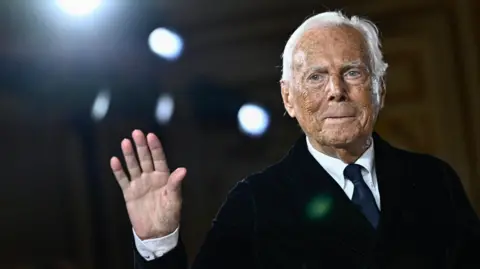Arthur Ashe, the legendary tennis player, made history fifty years ago by becoming the first black man to win the Wimbledon Men's final, defeating fellow American Jimmy Connors. While this triumph marked a significant milestone in sports history, Ashe did not wish to be solely defined by it. His true passion lay in dismantling racial barriers, particularly in apartheid-era South Africa, which became a focal point in his fight for justice.
"I don't want to be remembered in the final analysis for having won Wimbledon... it's not the most important thing in my life," Ashe articulated in a BBC interview shortly before his passing in 1993. His remarkable victory on July 5, 1975, is celebrated today with a special exhibition at the Wimbledon museum, demonstrating its cultural significance far beyond just sports.
Ashe's career was already established by the early 1970s, when he faced stark opposition from the South African government, which refused to issue him a visa to play in the country due to his vocal stance against apartheid. However, in 1973, he finally gained access to participate in the South African Open, agreeing to play only if the event was open to all spectators. This move drew mixed responses from the anti-apartheid movement, where some viewed him as legitimizing the oppressive regime.
British journalist Richard Evans, a close friend of Ashe, recalled how during Ashe's South African tour, he faced severe backlash and accusations of "Uncle Tom"-like behavior from some black journalists. Yet Ashe was determined to witness the reality of life under apartheid, emphasizing the importance of firsthand knowledge in forming his opinions.
Young South African author Mark Mathabane vividly remembers Ashe's impact during his visit to Soweto, where the tennis star held clinics for aspiring players. Mathabane recollects Ashe as "Sipho," or "gift" in Zulu, reflecting the hope he embodied for many. The seeds Ashe planted continued to grow as he later established the Arthur Ashe Soweto Tennis Centre to nurture young talent.
Despite challenges, including the clinic’s damage during violent uprisings in 1976, the centre has since been revived and aims to produce future tennis champions, focusing on instilling skills and resilience in its players. Ashe’s commitment to social change extended beyond tennis. He spoke against apartheid at global forums, making notable efforts in the Artists and Athletes Against Apartheid organization to advocate for international sanctions against South Africa.
Arthur Ashe's legacy is intertwined with his all-encompassing fight against racial injustice. His passionate activism, impactful speeches, and dedication to education on HIV/AIDS after contracting the virus himself only underscore his influence. Notably, his relationship with Nelson Mandela highlighted his role in advocating for change through sport.
In celebration of Ashe’s accomplishments at Wimbledon, this year’s championships feature a special installation and educational programs emphasizing his revolutionary efforts as an activist. While his tennis accolades are remarkable, it is Ashe's impact on consciousness—liberating minds from beliefs of inferiority—that resonates profoundly with many, especially those like Mathabane, who saw Ashe as a powerful symbol of possibility and change.





















